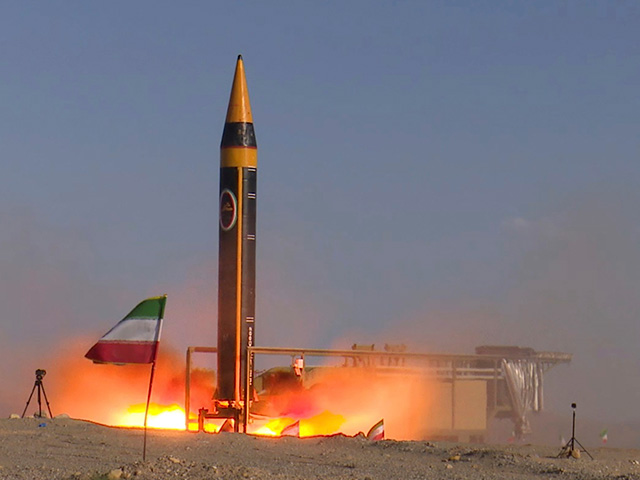The International Atomic Energy Agency (IAEA) on Wednesday passed a resolution condemning Iran for banning nuclear inspectors and called on the Iranian government to cooperate more fully with the U.N. nuclear watchdog.
The resolution passed with a vote of 20-2, plus 12 abstentions. The “no” votes came from Iran’s allies Russia and China. The Biden administration tried to squelch the resolution because it hopes to resume nuclear deal negotiations and fears alienating Iran, but in the end the U.S. voted in support of the measure.
“The need for the Board to hold Iran accountable to its legal obligations is long overdue. Iran must urgently, fully and unambiguously co-operate with the Agency,” said a joint statement from the UK, France, and Germany, who proposed the resolution.
“The Board will not sit idly by when Iran challenges the foundations of the non-proliferation system and undermines the credibility of the international safeguards regime,” the joint statement said.
The IAEA called on Iran to “reverse its withdrawal of the designations of several experienced Agency inspectors which is essential to fully allow the Agency to conduct its verification activities in Iran effectively.”
This was a reference to Iran blocking about one-third of the most senior IAEA inspectors from accessing its nuclear sites in September. The agency said at the time that Iran’s action was a “very serious blow” to its nuclear monitoring activities.
“This is completely uncalled for, this is completely illogical,” IAEA Director-General Rafael Grossi said in November.
Grossi visited Tehran in May with an IAEA delegation in an effort to resolve several outstanding issues, including Iran’s ban on senior inspectors, its deactivation of IAEA monitoring devices at some of its nuclear facilities, and its mad dash to produce highly enriched uranium.
Last month, a confidential IAEA report leaked to the media showed Iran has now enriched 30 times the amount of uranium specified in former President Barack Obama’s 2015 nuclear deal. Iran’s stockpile of highly enriched uranium now stands at over 6,200 kilograms.
According to the IAEA, Iran is the only non-nuclear nation to enrich uranium to such a high level. Grossi has said Iran could build “several nuclear weapons” with its stash of radioactive material.
Another lingering item of business is the discovery of unexplained uranium particles detected at undeclared Iranian nuclear sites in late 2019. The IAEA passed a resolution in 2022 demanding Iran cooperate more fully with inspectors and explain the mysterious uranium particles, but the Iranians have never done so.
Iranian state media denounced the IAEA resolution as “hasty and unwise,” and said it will “undoubtedly have a detrimental impact on the process of diplomatic engagement and constructive cooperation.”
“The Islamic Republic of Iran considers the presentation and approval of this resolution to be a political and non-constructive action and a continuation of the previous failed policies of some Western countries and an attempt to politically abuse international mechanisms against independent countries,” the Iranian Foreign Ministry said on Wednesday night.
Iran previously threatened a “serious and effective response” if the IAEA resolution passed, and dismissed the censure proposal as “devoid of any legal, technical, and political basis.”
